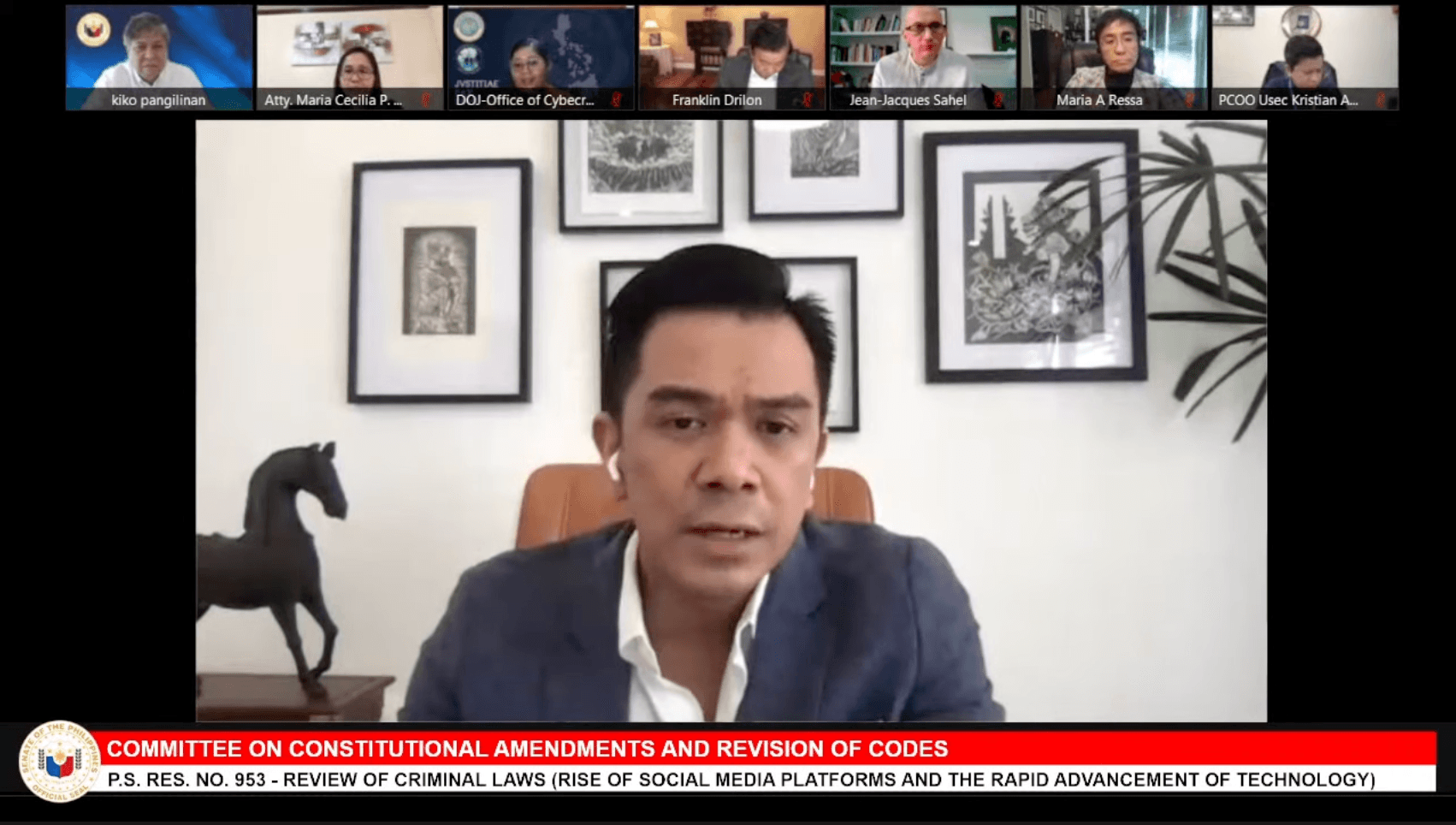SUMMARY
This is AI generated summarization, which may have errors. For context, always refer to the full article.

MANILA, Philippines – While brands and advertising agencies do their part in avoiding advertising on channels with harmful and libelous content, social media companies are still primarily responsible for where online advertisements are placed on their platforms.
During a Senate hearing on social media platforms and disinformation on Wednesday, January 12, e-commerce companies Shopee and Lazada and advertising company Ogilvy informed the Senate panel about how their advertisements were appearing on online channels they did not purposefully target.

This is especially crucial at a time when online disinformation is rampant, and where advertisements placed on harmful content allow fake news peddlers and propagandists to earn more money.
Adeline Sta. Ana, account director at Ogilvy, said they request not to place their advertisements on places with “malicious content” or content that does not align with their brands’ values.
E-commerce brands Shopee and Lazada have “opted out” of groups with sensitive content and other placements they do not want their ads to appear. Lazada Philippines chief marketing officer Neil Trinidad added, however, that they “rely heavily” on digital platforms and their algorithms to ensure these brand safety exclusions are implemented.
“In that sense, we as brands do not have any further control after we have already selected our ‘opt outs’ or our exclusions,” Trinidad said.
This was also echoed by the Ad Standards Council (ASC), the body in charge of screening and regulating advertising materials in the country. Lawyer Rudolph Steve Jularbal, representing ASC, said that while they focus on the content of the advertisements, they have no control over the platforms in which their members place their materials.
Brands and ad agencies also take additional measures only after they notice their ads being placed on harmful content. Sta. Ana added that they “act swiftly” in removing their ads placed on certain channels, and Trinidad said they regularly update their negative lists with channels associated with libelous content.
Tech platforms have a number of policies in place for ad placements. Meta says they have several tools available to help advertisers and agencies, including topic exclusions, block lists, publisher allow lists, and content allow lists.

As for Google, Asia-Pacific information policy lead Jean-Jacques Sahel said that they are “continuing to improve” in how they address advertisements and disinformation. In 2020 alone, Google removed ads from 1.3 billion publisher pages and stopped ads from serving on over 150,000 publisher sites.
Google also owns YouTube, the most popular social media platform in the Philippines. YouTube’s unclear policies have allowed disinformation to thrive on the platform.
But despite the current policies, Senator Kiko Pangilinan noted the “major lack of transparency” as brands and agencies are not aware of the processes of the algorithms.
“We are, for the lack of a better term, we are letting the machine take over our lives, and regardless of what the machine does, we will point to the machine and say, ‘Well, we have no control.’ In the meantime, these garbage sites are monetizing your ad placements,” Pangilinan added.
In the same hearing, Rappler CEO and Nobel Peace Prize laureate Maria Ressa called on Filipino senators to craft a law that would hold tech companies accountable for disinformation distributed on their platforms. – Rappler.com
Add a comment
How does this make you feel?

![[OPINION] From ‘Puyat’ to ‘Tulog’: Clout-chasing street signs disrespected history](https://www.rappler.com/tachyon/2024/07/gil-puyat-july-26-2024.jpg?resize=257%2C257&crop=389px%2C0px%2C1080px%2C1080px)



There are no comments yet. Add your comment to start the conversation.